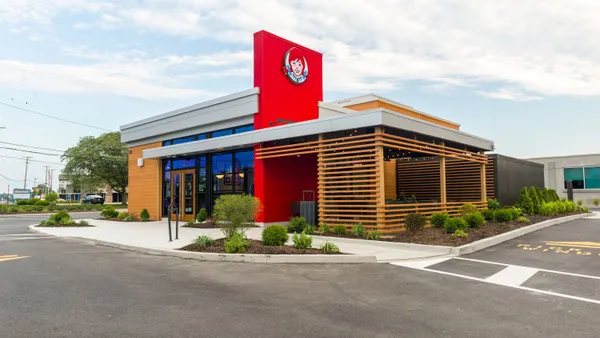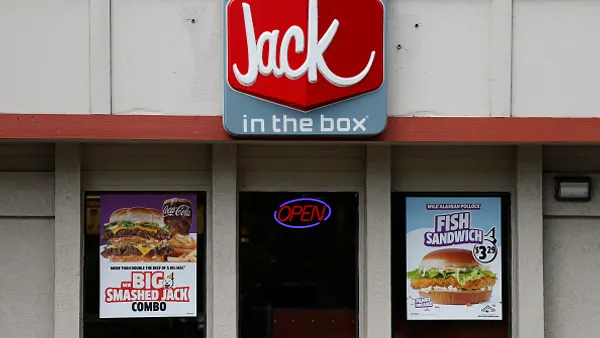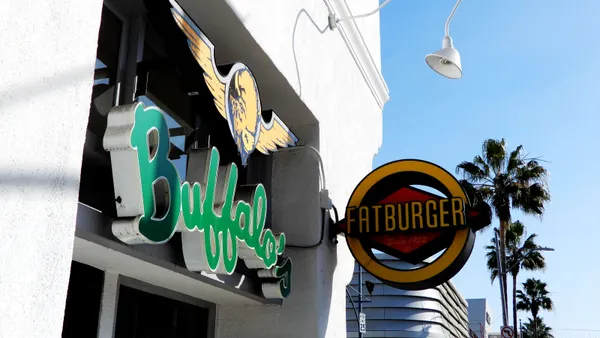Dive Brief:
- IBM will acquire McDonald's McD Tech Labs, which the fast food chain created following its purchase of conversational technology firm Apprente in 2019 to "advance employee and customer facing innovations," McDonald's announced on Wednesday.
- The deal is part of a larger agreement with IBM to ramp up the development and implementation of McDonald's Automated Order Taking (AOT) technology. IBM will help scale AOT across McDonald's markets and innovate with additional languages, dialects and menus.
- This deal comes seven months after McDonald's announced its interest in a partial sale of artificial intelligence firm Dynamic Yield. It reflects the chain's evolving approach to insourcing versus outsourcing technology, CEO Chris Kempczinski said on McDonald's Q3 2021 earnings call.
Dive Insight:
McDonald's has been pleased with Apprente's team progression and performance results since it bought the firm, but Kempczinski added there is still "a lot of work to go into" extending its technology to its 14,000 U.S. restaurants and further hone its language and menu permutations.
"That work is beyond the scale of our core competencies, if you will. And so I think in this case, IBM is a natural partner for us," Kempczinski said.
Still, McDonald's has made progress in implementing Apprente's technology at its stores. In June, the company announced it was piloting the firm's voice-ordering technology at 10 Chicago restaurant drive-thrus. The units, which use computers to collect orders when possible, saw 85% order accuracy and only about 20% of orders required employee intervention. At the time, Kempczinski said the voice technology would be scaled across McDonald's drive-thrus by 2026.
Going forward, decisions to bring technology in-house versus accessing technology through partnerships will be made on a case-by-case basis, he said.
"There are certain times when it may make sense for us to go acquire a technology so that we can accelerate the development of that, make sure that it is bespoke to McDonald's needs." Kempczinski said. "But at some point that technology reaches a level of development where I think getting it to a partner who can then blow it out and scale it globally makes more sense."
It sounds as though outsourcing may be the chain's primary technology strategy, however.
"I think our overall view is we are best on a long-term sustaining basis to use [external partners], but again, there may be time to time where there's benefit for us from being able to accelerate and learn to have it in [house] for a period of time," Kempczinski said.
By tapping into IBM's technological expertise, McDonald's hopes to speed up its efforts to deliver a more "convenient and unique" customer experience, the company said in the press release. The partnership could drive innovations in personalization that could help further bolster McDonald's loyalty program, which launched nationwide in July.
The program has increased diner frequency, Kempczinski said, and builds toward the company's goal for 40% of its customers to be "known" customers. Currently, known customers — who McDonald's can collect data from to learn who they are, what they buy and what their overall purchase history is — only make up about 5% of McDonald's customer base. By mid-year 2022, McDonald's hopes to offer its loyalty program in its top six markets. In the U.S., engagement has exceeded expectations, with 21 million total loyalty members and 15 million active loyalty members, Kempczinski said.
Further investment in technological and digital innovations should help capture more loyalty members. Currently, 20% of McDonald's orders in its leading six markets are coming through digital channels, including the McDonald's app, kiosks and delivery, representing $13 billion.













